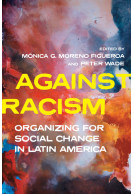The Descent of Artificial Intelligence (Hardback)
Scenes from the Deep History of a Field 400 Years in the Making
Imprint: University of Pittsburgh Press
Pages: 384
ISBN: 9780822947967
Published: 28th February 2025
Script Academic & Professional
Pages: 384
ISBN: 9780822947967
Published: 28th February 2025
Script Academic & Professional
Usually available in 6-8 weeks.
You'll be £35.00 closer to your next £10.00 credit when you purchase The Descent of Artificial Intelligence. What's this?
+£4.99 UK Delivery or free UK delivery if order is over £40
(click here for international delivery rates)
Need a currency converter? Check XE.com for live rates
(click here for international delivery rates)
Need a currency converter? Check XE.com for live rates
The idea that a new technology could challenge human intelligence is as old as the warning from Socrates and Plato that written language eroded memory. With the emergence of generative artificial intelligence programs, we find ourselves once again debating how a new technology might influence human thought and behavior. Researchers, software developers, and “visionary” tech writers even imagine an AI that will equal or surpass human intelligence, adding to a sense of technological determinism where humanity is inexorably shaped by powerful new machines. But among the hundreds of essays, books, and movies that approach the question of AI, few have asked how exactly scientists and philosophers have codified human thought and behavior. Rather than focusing on technical contributions in machine building, The Descent of Artificial Intelligence explores a more diverse cast of thinkers who helped to imagine the very kind of human being that might be challenged by a machine. Kevin Padraic Donnelly argues that what we often think of as the “goal” of AI has in fact been shaped by forgotten and discredited theories about people and human nature as much as it has been by scientific discoveries, mathematical advances, and novel technologies. By looking at the development of artificial intelligence through the lens of social thought, Donnelly deflates the image of artificial intelligence as a technological monolith and reminds readers that we can control the narratives about ourselves.
Other titles in University of Pittsburgh Press...















